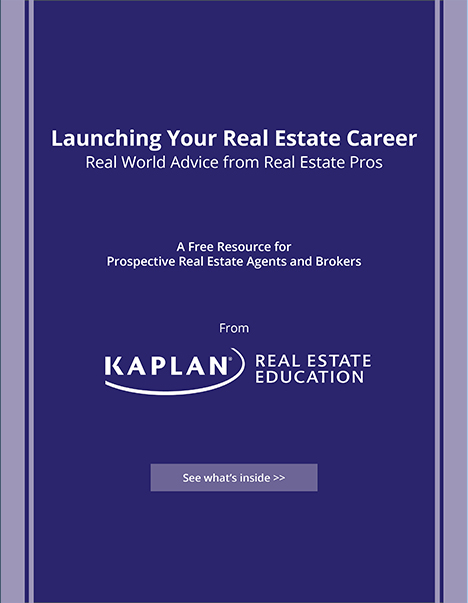Sluggish growth given that 90% of the profit is returned to financiers, just 10% can be reinvested back into the business. Higher tax payment dividends are taxed the exact same as routine income instead of with the 15% rule that a lot of dividends fall under. Investment danger can be considerable due to the fact that of elements that might affect the realty market, such as residential or commercial property valuation, rates of interest, financial obligation, geography, and tax laws; therefore, due diligence needs to be worked out. Management costs some REITs charge high deal and administrative charges, which tend to minimize the net payment to financiers. Very little control financiers can't control functional decisions, such as the ownership of properties and the techniques applied to market trading.
CFI uses the Financial Modeling & Evaluation Analyst (FMVA)FMVA Accreditation accreditation program for those aiming to take their professions to the next level. To keep learning and advancing your profession, the following CFI resources will be helpful:.
A REIT, or realty investment trust, is a company that owns, operates or finances real estate. Investing in a REIT is an easy method for you to include realty to your portfolio, offering diversification and access to historically high REIT dividend payments. A REIT owns different kinds of income-producing property, such as mall, hotels, office buildings, homes, resorts, self-storage centers, storage facilities and even cell phone towers. The majority of REITs focus on one kind of realty, though some consist of multiple residential or commercial property types. Generally, a REIT leases out the properties that it owns and gathers rent as its primary source of revenue.
To certify as a REIT, a business should: Invest at least 75% of overall possessions in property. Obtain at least 75% of its gross income from rents from real residential or commercial property, interest on home loans financing real residential or commercial property or from realty sales. Pay at least 90% of taxable earnings as investor dividends each year. Be an entity that is taxable as a corporation. Be managed by a board of directors or trustees. Have a minimum of 100 investors. Run out than 50% of its shares held by five or fewer people. You might consider buying a REIT for a few key reasons: One of the primary factors to purchase REITs is the exposure they offer to real estateresidential, business or retailwithout needing you straight acquire private residential or commercial properties.

The Main Principles Of What Is Real Estate
Robert De, Hollander, CFP, a financial advisor in Greenville, SC, indicates the cabin he owns in the mountains that was just recently struck by lightning and burned to the ground. "If you're going to own genuine estate straight, there's a headache aspect," he says. "If you purchase a securitized REIT, you do not need to handle toilets, tenants, trash, fire, any of that stuff," he states. To certify as a REIT, business are needed to pay out at least 90% of their gross income to investors. That makes REITs a good source of dividends. "People buy REITs typically because they like the earnings," De, Hollander says.
93% typically, according to information examined by NYU's Stern School of Service, though specific REIT sectors might provide higher dividend payments. For context, S&P 500 funds use dividend yields of around 1. 71% as of August 2020. Since real estate is an asset class that's not straight tied to standard markets, REITs can strengthen your portfolio when markets take a plunge. "REITs use an unique risk/reward profile that doesn't always completely associate with stocks or bonds," says Michael Yoder, CFP, principal of Yoder Wealth Management in Walnut Creek, Calif. "This can make them a crucial portfolio diversifier." escape resolutions timeshare For example, he states, during the dot-com economic downturn, REITs were up every year from 2000 to 2002.
Historical returns aren't bad, either. Over the previous twenty years, REIT total return performance has beaten the performance of the S&P 500, as well as the Russell 1000 (large-cap stocks), Russell 2000 (small-cap stocks) and Bloomberg Barclays https://erickxaln200.wordpress.com/2021/10/03/the-only-guide-for-how-to-make-money-in-real-estate/ (U.S. aggregate bond). That stated, purchasing REITs isn't without drawbacks. REITs provide income through dividends, however REIT dividends are generally taxed at a greater rate than stock dividends. You ought to also be gotten ready for the market swings that include REIT investing. "People are chasing after yield due to the fact that they need the earnings, however they require to understand the underlying threat and volatility," states Scott Bishop, CFP, executive director of wealth services at Avidian.
The majority of the income that REITs disperse to financiers counts as regular earnings instead of certified dividends. That indicates it's taxed at your marginal earnings tax rate rather of the preferential, lower rate offered to long-term capital gains and most other dividends. Because of this, you could be taxed as much as 37% on REIT dividends, depending upon your tax bracket - What is mls real estate. That said, through Dec. 31, 2025, you may be able to subtract approximately 20% of your REIT dividend earnings, rendering your reliable REIT dividend tax rate as much as 29. 6%, according to Nareit, a REIT agent body. This still goes beyond the optimum 20% tax rate for qualified dividends and long-lasting capital gains.
The Single Strategy To Use For Why Use A Real Estate Agent
" For instance, shopping mall REITs like CBL, SPG, and WPG have struggled mightily throughout Covid, though trends away from physical retail have actually also contributed to their weak current performance," Garcia states. "Health care and domestic REITs tend to have lower financial level of sensitivity than REITs oriented to industrial, business or retail applications." Publicly noted REITs are traded on stock exchanges and priced constantly, like stocks and bonds. This grants them comparable liquidity to those financial investments. Other public REITs, nevertheless, are not listed on major exchanges. This usually limits their liquidity to fund redeemed deals or trading on secondary markets. In either case, financiers might not be able to buying timeshare foreclosure sell as lots of shares as they wish, or they might need to wait to sell.

" Personal REITs are much riskier and there have actually been some scandals that have provided all REITs a bad name," says David Haas, CFP, founder of Cereus Financial Advisors in Franklin Lakes, NJ. "Personal REITs ought to just be sold to investors who comprehend the risks and are prepared to deal with them." That stated, the REITs and REIT funds that the majority of financiers purchase are publicly listed and use comparable liquidity to other publicly noted securities. There are 4 significant kinds of REITs: A lot of REITs are publicly traded equity REITs, which own or run income-producing realty, such as office structures and apartment building.
28%, according to Nareit. Likewise referred to as home loan REITs, m, REITs offer financing for income-producing realty by buying or originating home loans and mortgage-backed securities and making income from the interest on the investments. Over the last 40 years, the home mortgage REIT index has actually returned 5. 02%. These are REITs that are signed up with the SEC but do not trade on the national stock market. Liquidity may be restricted on these types of REITs. These REITs are exempt from SEC registration and don't trade on national stock market. These can normally just be offered to institutional investors. If a REIT is noted on a significant stock market, you can buy shares in it the same method you 'd buy shares in any other public company.